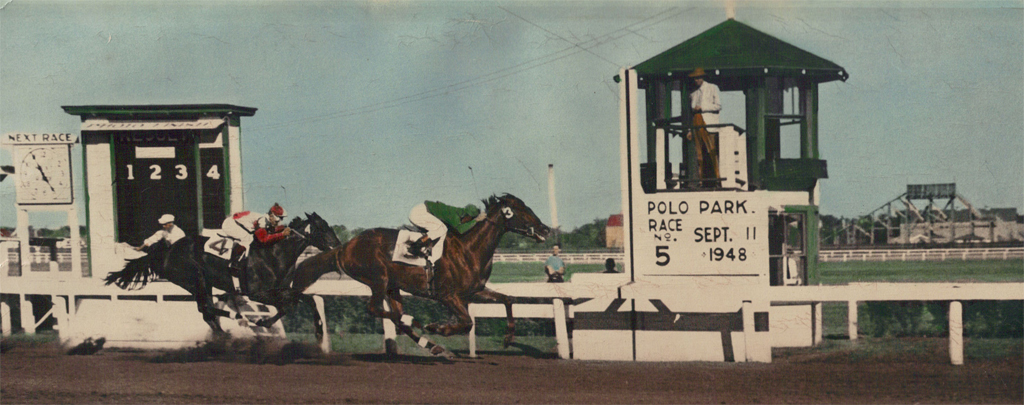
Fort Garry wins the 1948 R. J. Speers at Polo Park.
by Bob Gates
On Saturday, June 29 "The Speers" celebrates its 60th running, but what most don’t realize is that there is more than 90 years of history behind the race that honours Robert James Speers, the "Father of Thoroughbred Horse Racing" on the Canadian prairies.
Assiniboia Downs ran the inaugural R. James Speers Memorial Handicap in 1959. Prior to the Downs opening in 1958 however, the "Speers Handicap" was an annual event that was run for 31 years, first at Whittier Park in St. Boniface from 1926 to 1942 and then at Polo Park racetrack until its closure in 1956.
Before we look at the history of the Speers Handicap, how about a few words about Mr. Speers.
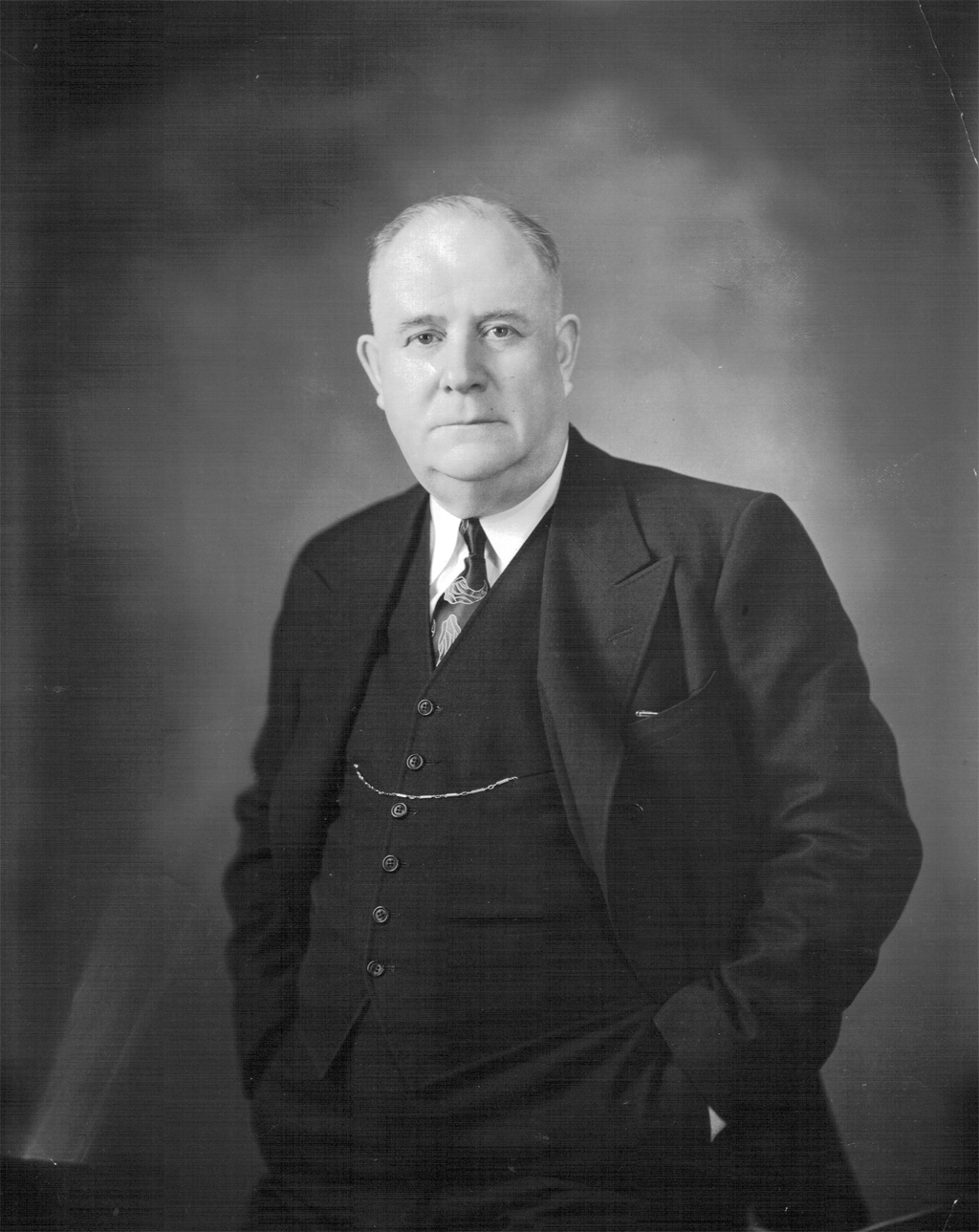
Robert James Speers, the "Father of Thoroughbred Horse Racing" on the Canadian prairies.
In 1922, Speers, with partners Thomas Sumner and William Halpenny, took over a three-year lease on River Park in Winnipeg. This was the first time Speers leased and operated a racetrack. His entry into the sport of horse racing was to be the beginning of great things for the industry. His introduction to the sport had just begun, he knew almost immediately that long range plans were needed and that improvements to River Park were necessary.
The “first” race meet at River Park was held on June 17, 1922 under the supervision of the Winnipeg Driving Club. This meet was different from others that had been run at River Park in that it was devoted solely to “runners,” not pacers or trotters. By all accounts Speers first meet was a success.
Speers’ introduction of pari-mutuel betting was an important part of eliminating the corruptive gambling influence that was largely responsible for the drop in horse racing’s popularity. Speers hired experienced and reputable people to operate the pari-mutuel machines and handle the cash. Pari-mutuel betting eliminated the gambling element, as the public preferred to purchase their tickets from the racetrack machines rather than bookies.
With the success of the first meet under his belt, Speers was confident that thoroughbred racing was here to stay and that Winnipeg racing fans were ready for more. He brought a respectability that had been sorely missing in horse racing. The end of the Great War coupled with this newfound integrity laid a firm foundation for racing in Winnipeg that would carry forward for years to come.
In 1923 Speers worked on plans for the expansion of racing in Winnipeg and in 1924 the construction of Whittier Park began on the banks of the Red River in St. Boniface. Initially Whittier Park was a four-furlong oval but it was later expanded to five furlongs. There were many obstacles, but Speers had a tremendous attitude and as he had done and would continue to do, he confronted those challenges. On June 24, 1924 Whittier Park opened for business and held its inaugural race meet under the direction of the Manitoba Jockey Club, which had been incorporated in 1914 but reorganized under Speers.
In 1925, Speers together with the Winnipeg Jockey Club built Polo Park. The conveniently located Polo Park track had a six-furlong oval and was considered one of the finest in western Canada. Polo Park’s first day of racing took place on June 12, 1925. All three tracks, River Park, Whittier Park and Polo Park were used in 1925.
The facilities at Whittier Park and Polo Park were far superior to those at River Park and June 10, 1925 marked the last time that thoroughbred horse racing was held at River Park on a regular basis. In 1934, thoroughbred horse racing returned, albeit very briefly, to River Park, when a week-long summer race meet was held in conjunction with the Winnipeg's celebration of its 60th year of incorporation.
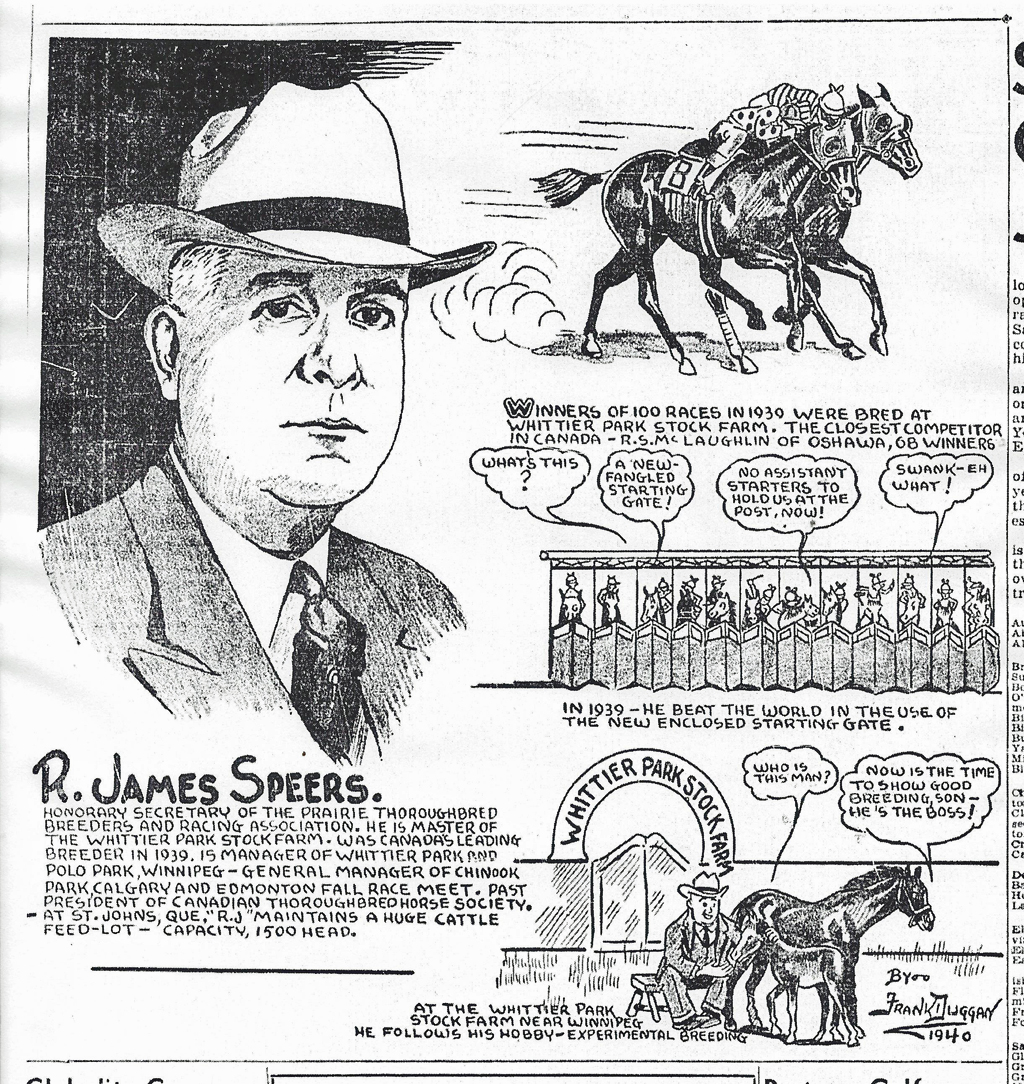
Winnipeg Tribune, May 30, 1940.
Racing continued at Whittier Park and Polo Park until 1942. The last race meet at Whittier Park was June 15, 1942. In 1943 the decision was made to use only Polo Park.
Currently the Speers Stakes features the best horses on the grounds, but those 31 years of the Speers Handicap saw the top runners of the old Prairie Racing Circuit clash on an annual basis. There were some classic races when the top runners from Edmonton, Calgary, Regina, Saskatoon and Winnipeg got together for one of the top purses in the west. Initially the race was a $2,500 added event that rose to $5,000 added, except for the war years, which saw a slight reduction in the purse.

Fort Garry in the winner's circle. R. J. Speer Stakes. Sept. 11, 1948.
How many names from this list of winners can you recall?
1926 Snow Maiden 1941 Cooperstown
1927 Missionary 1942 Palmera T
1928 Rochester ll 1943 Son of War
1929 Manchu 1944 Teeworth
1930 Formic 1945 Gallant Simon
1931 Modern Times 1946 Brighton King
1932 Blue Day 1947 Optioner
1933 Help Yourself 1948 Fort Garry
1934 Help Yourself 1949 Air Cadet
1935 Joey 1950 Rise to Follow
1936 Lady Gold 1951 Sir Strome
1937 Sweepden 1952 Coiner
1938 Jubilargo 1953 Chain Reaction
1939 Hainault Maid 1954 Infusion
1940 Recoatna 1955 Foxation
1956 Dr. Pat
Tough race to win? The fact that there was only one, two-time winner, Help Yourself (1933,1934) speaks volumes.
Speers Handicap Facts & Figures:
The race was for 3-year-olds and up, but only one 3-year-old ever won the race. Filly Modern Times won in 1931, setting a new track record in the process. After Modern Times other track record performances followed:
- 1936 Lady Gold - new track record – 1 1/16-miles
- 1937 Sweepden - equaled track record – 1 1/16-miles
- 1951 Sir Strome - new track record - 1mile & 70 yards
- Largest field - 1929, 18 horses
- Smallest field - 1936, 4 horses
- Longest priced winner – 1930, Formic, $33.45
- Shortest priced winner – 1953, Chain Reaction, $2.60
- In 1945, less than even money favourite K & K Stables' Koraway ran a disappointing third while carrying the most weight ever by any horse in the history of the race, 135 pounds, spotting the winner 18 pounds and the second-place finisher 20 pounds.
- The "Peoples' Horse" Joey won in 1935. Joey's career stats were impressive, he won 30% of his lifetime starts and finished in the top three a remarkable 70% of the time.
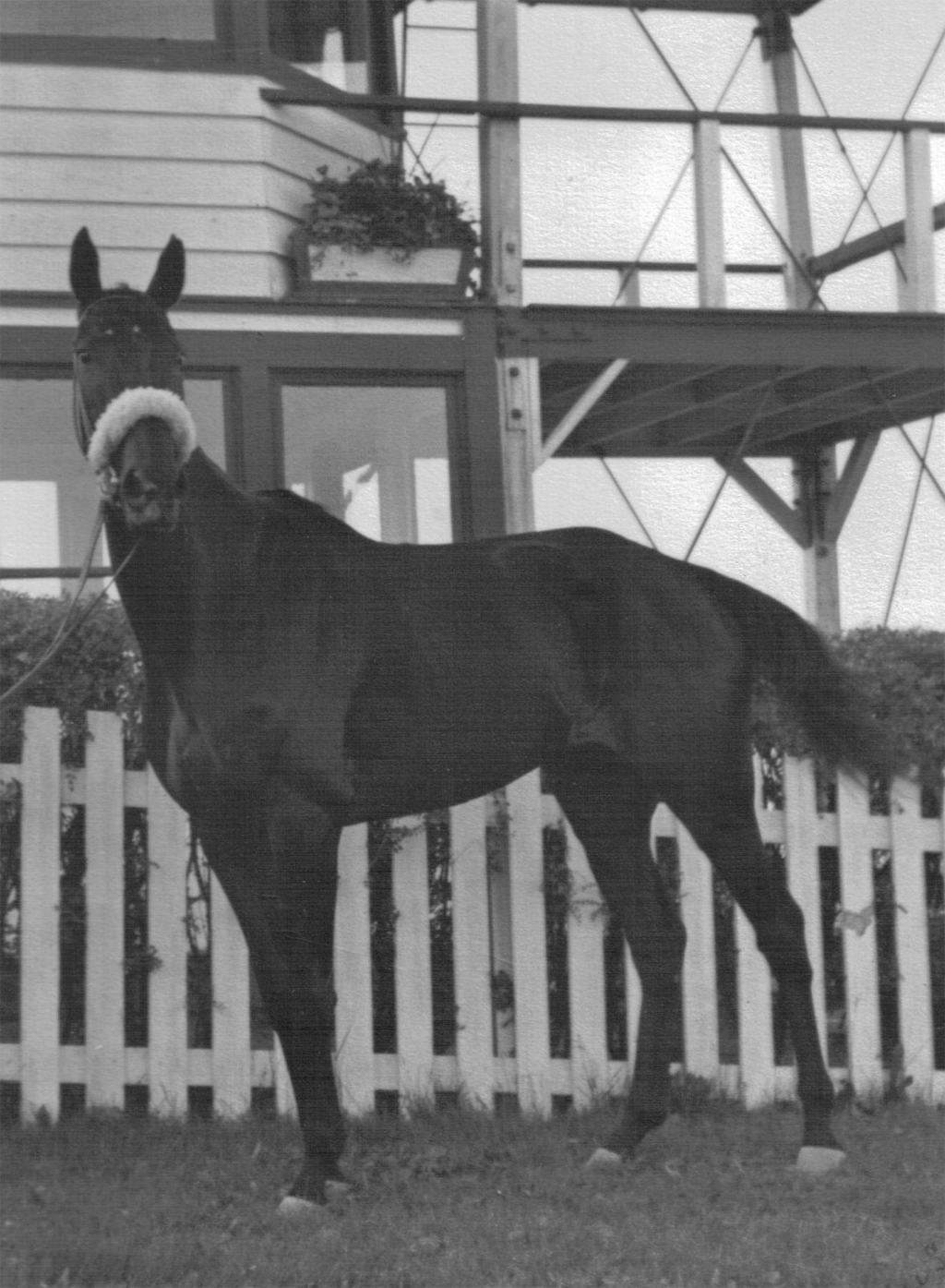
1935 Speers winner Joey, "The Peoples' Horse."
- 1943 winner Son of War was owned by Hollywood silent screen star Anita King, who was regular visitor to Polo Park.
- 1952 winner Coiner was the son of 1941 Triple Crown winner Whirlaway.
No one jockey, trainer or owner dominated the race, but among the jockeys who rode in the Speers were familiar names like: Craigmyle, Longden, "Red" Pollard, Bailey, Fitzsimmons, Winnipeg native Tommy Stadnyk and future Downs starter Nick Cizik.
In the mid-1950s Speers was getting on in age and had mothballed both River Park and Whittier Park. Following his death in 1955, Polo Park was on life-support. Speers' death coupled with the ever-rising value of the land that the track was sitting on created a tremendous amount of uncertainty as to the future of racing in Winnipeg. Where was Winnipeg racing headed?
We'll explore the history related to the present-day R. J. Speers Stakes and how it came to be next week.
Stay tuned!
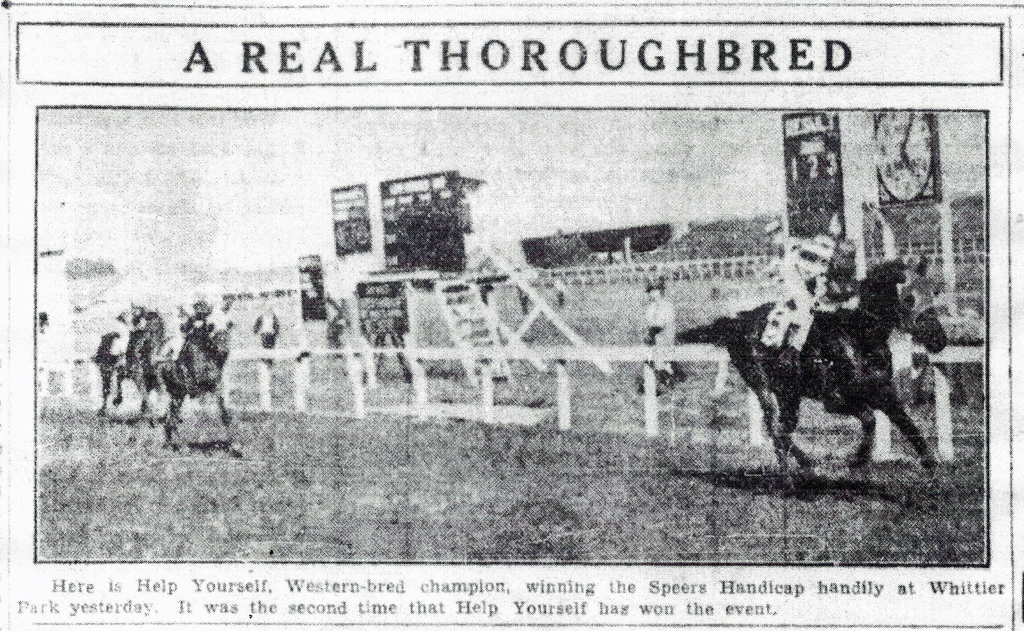
1934 R. J. Speers winner Help Yourself.


